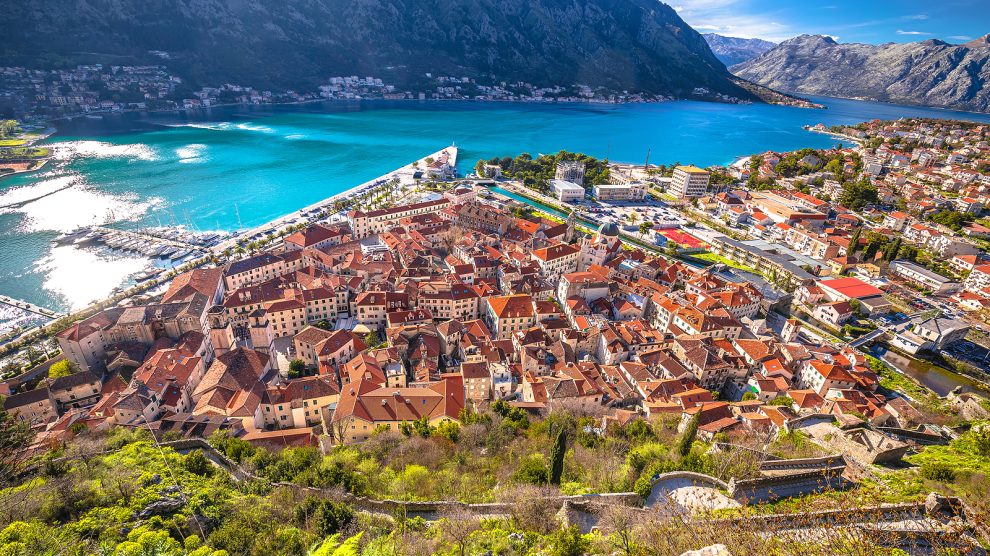In the wake of recent presidential and parliamentary elections, Montenegro needs to work towards a more sustainable growth strategy to accelerate its convergence with European Union living standards, according to a new report from the World Bank.
Despite significant progress over the past decade, the average income of Montenegrins is projected to take almost 40 years to reach the average income levels of the EU if it continues with its pre-Covid growth rates.
To overcome this challenge Montenegro requires a new, more sustainable growth strategy based on productivity and human capital gains while preserving natural resources.
- In Montenegro, a changing of the guard
- Western Balkans show resilience despite slowing growth and continued price rises
- China returns to the Western Balkans
“Montenegro’s previous growth strategy heavily relied on attracting large investment projects in sectors such as transport, energy, and tourism,” says Marc Schiffbauer, World Bank Senior Country Economist, and co-author of a new report, Montenegro: Towards a Sustainable Growth Strategy.
“Although this led to temporary construction booms, it was often not accompanied by productivity growth, resulting in limited long-term benefits and increased vulnerability to external shocks,” adds Schiffbauer.
A more sustainable growth model needs to prioritise three key areas: removing regulatory barriers for firms to enter markets and grow; leveraging trade to enable firms access to new markets and technology; and unleashing Montenegro’s full human capital potential by raising equality of opportunity.
Promoting competition by eliminating restrictive regulations in service sectors, for example, could raise Montenegro’s annual growth rate by approximately 0.4 per cent which would reduce the time required to reach EU income levels by 13 years.
According to the International Monetary Fund, Montenegro’s economy is expected to grow by 3.2 per cent this year. In 2022 the economy grew by 6.1 per cent.
Moreover, Montenegro’s substantial income inequality constrains upward mobility which impedes the productivity of workers. By providing equitable access to quality education and healthcare, irrespective of geography, gender, or socioeconomic background, Montenegro will boost the skills of tomorrow’s workers and tap into the full potential of its entrepreneurial talent.
“By implementing these reforms, Montenegro can expect a thriving private sector, significant job opportunities, and ultimately improved wages and benefits for all its citizens,” says Christopher Sheldon, World Bank Country Manager for Bosnia and Herzegovina and Montenegro.
The tourism sector
Addressing skill shortages, improving infrastructure, and implementing policies more consistently will further raise the economic benefits from tourism – Montenegro’s driver of economic growth. Still, tourism requires special attention as its growth is more vulnerable to environmental degradation and climate change. Sustaining its growth thus requires greening the sector.
Tourism accounts for around 20 per cent of GDP, and the sector has been in full expansion in recent years: every year Montenegro welcomes three times as many visitors as its total population. The sector was heavily impacted by the Covid-19 pandemic (which contributed significantly to a drop of more than 15 per cent in overall GDP) but it showed signs of recovery in 2022 when the country welcomed more than two million tourists.
Finally, to sustain the impact of a new growth strategy, the report suggests that Montenegro should empower public institutions and strengthen the rule of law. Inconsistent enforcement of legal frameworks and high informality pose challenges to economic development and hinder EU integration.
Strong public institutions, including a well-equipped competition authority, anti-corruption mechanisms, and effective environmental protection and waste management agencies, are necessary to support the new growth strategy, ensure macroeconomic stability and higher standard of living.

The political context
Montenegro held a parliamentary election on June 11, won by the pro-EU Europe Now Movement with just over 25 per cent of the vote – well short of a majority. Intense coalition talks have yet to lead to the formation of a new government.
In April, Jakov Milatović – backed by Europe Now – defeated incumbent president Milo Đukanović, who has led Montenegro as either its prime minister or president almost continuously for three decades, in a presidential run-off.
Montenegro joined NATO in 2017 but its membership talks with the EU, which began in 2012, have stalled due to slow progress on most accession criteria, particularly the rule of law and corruption. Some 33 (out of 35) negotiation chapters have been opened in the decade since, but just three have been completed.
In its latest progress report, published in December 2022, the European Union welcomed the overall progress made in Montenegro’s accession but stated that the fulfilment of rule of law interim benchmarks remained the utmost priority for further progress.
Unlike many news and information platforms, Emerging Europe is free to read, and always will be. There is no paywall here. We are independent, not affiliated with nor representing any political party or business organisation. We want the very best for emerging Europe, nothing more, nothing less. Your support will help us continue to spread the word about this amazing region.
You can contribute here. Thank you.


